Garden by the Lake: A Natural Cottage Shoreline Landscape
Plants can do many things. Here’s a recent cottage shoreline project that played several roles.
The existing site
My client wished to add native plants to their shoreline in the area where a building was removed. As well as rehabilitating the site, an aim was to create a screen that masked a fenced area. The 240 sq ft area was moist-drained for the most part, and varied between part-sun and shaded.

The concept
We know that natural shorelines are best for the lake. But they can also form a beautiful part of a landscape.
I created a three-layered landscape that mimics a natural shoreline while at the same time creating visual interest. I placed an emphasis on shrubs that will over time create a screen, along with tall-growing perennials that will help create a screen during the height of the summer.
The groundcover layer is of sedges. These low-growing grass-like plants are common in Haliburton County. I chose two varieties with different appearances, to add variety to this important layer.
Next came the vignette layer, where I chose plants that flower at different times of the year. I also chose plants that provide interest and a seed source early in the landscape’s life as well as plants with greater longevity.
Finally, I chose some shrubs to provide structure and privacy. One of the many benefits of shrubs is that they provide interest in the spring, with their blossoms, and fall, with their leaf colours. That’s on top of the food and habitat they provide for wildlife. After a few years, they will provide greater privacy. They can mostly be pruned to encourage growth in the lower part of the plant.
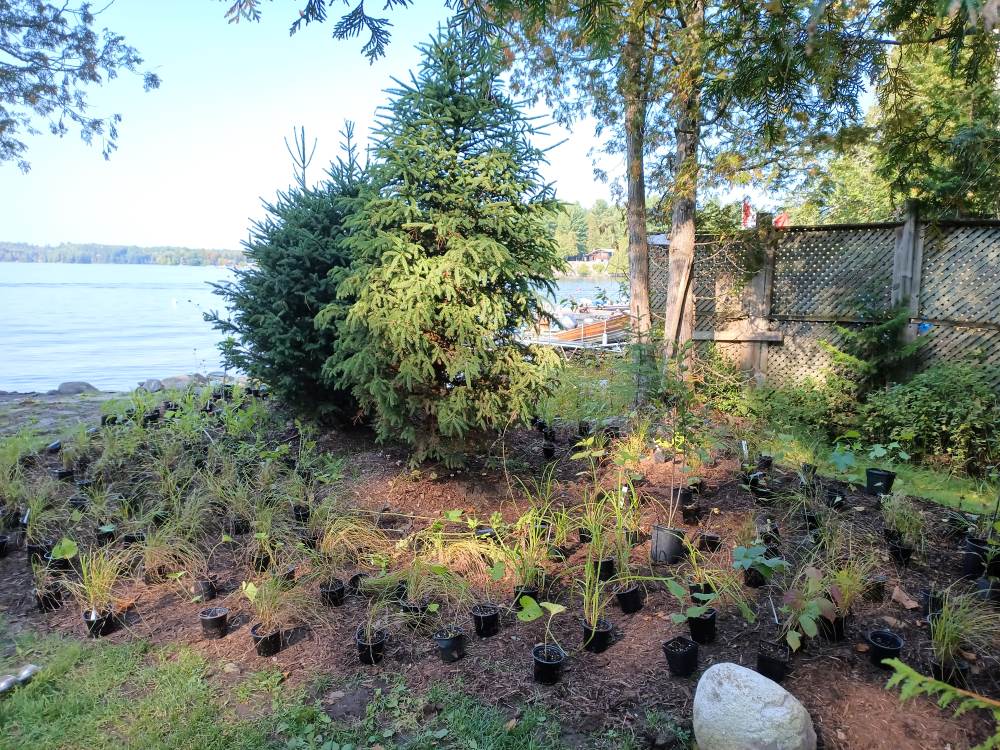
The details
I removed the existing vegetation on the site. This was mainly turf grass, but there were also some perennials and, in some places, moss.
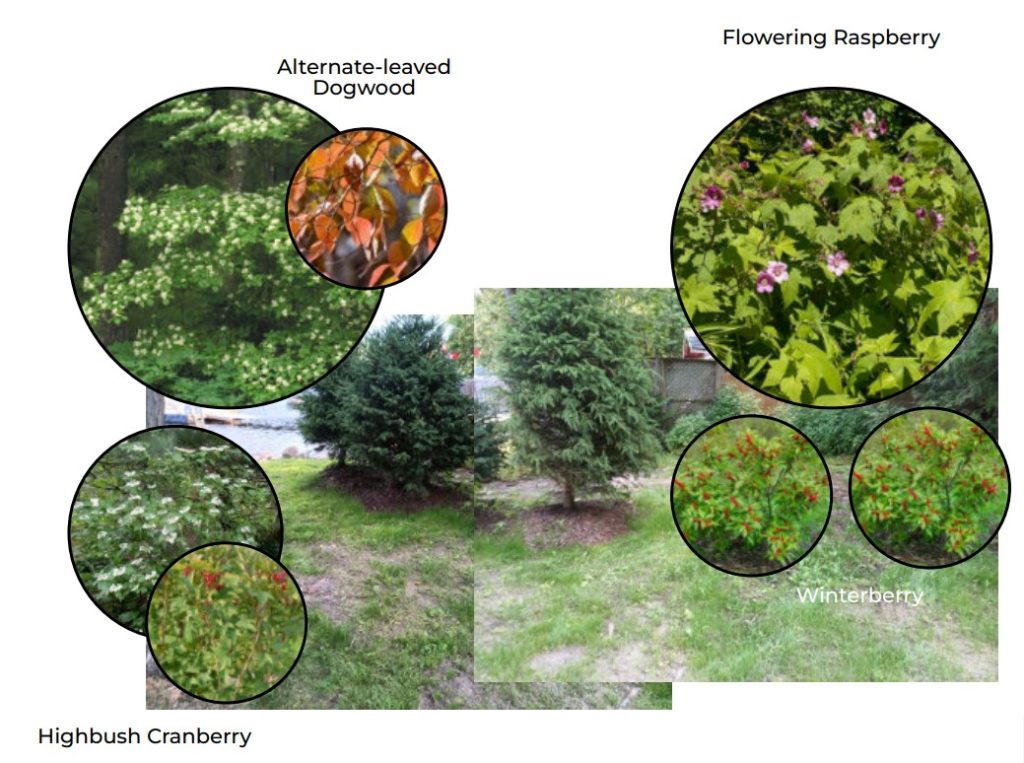
Then I added a two-inch layer of mulch to help with weed suppression.
The shrubs were planted next, with an Alternative-leaved Dogwood providing the main focus of the screen. This is accompanied by two Highbush Cranberry shrubs. In the more shaded part of the site, a Flowering Raspberry was placed to, over time, screen a fence. In front were two Winterberry shrubs.
The vignette layer of perennials were planted next, with the most moisture-loving plants in the wetter areas near the lake. Plants were in repeated groups of three or five specimens.
Finally, the two sedge species were planted in the gaps. They form 50% of the planting, creating a tapestry that ties together the site.

The plants
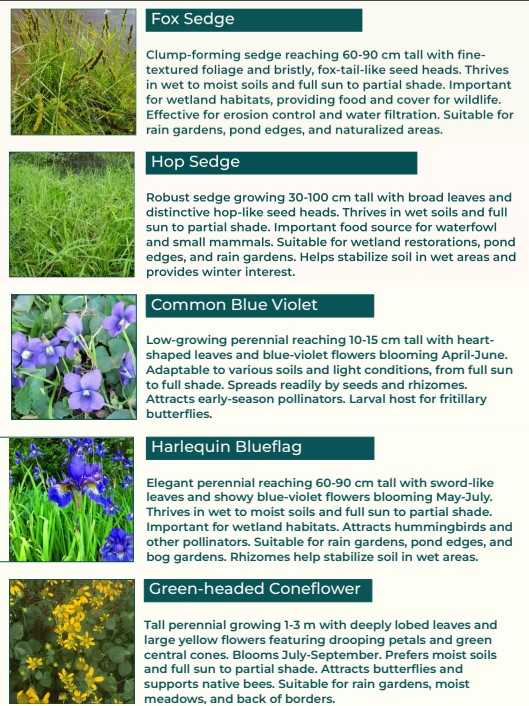
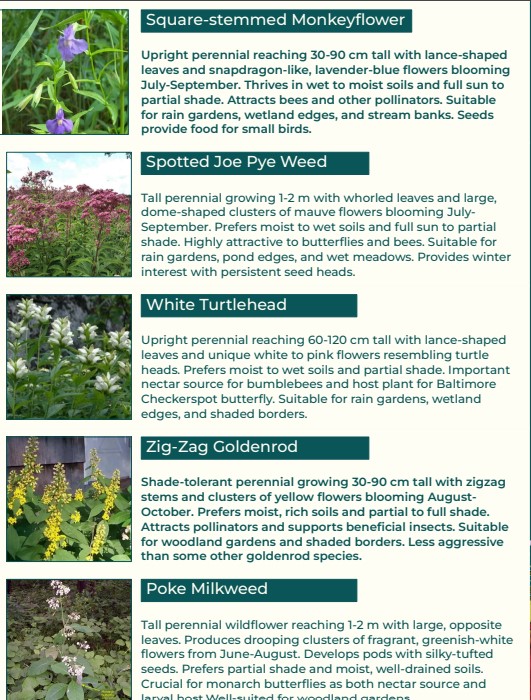
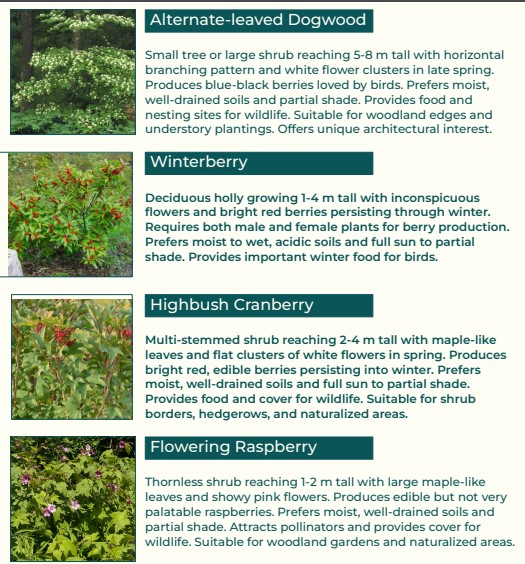
The future
As this site is fairly moist and shaded, I do not foresee big problems with irrigation and weed pressure. The most likely source of weeds is from the pre-existing grass. A quick run-through of the site each time the homeowner is at their cottage should be sufficient.
